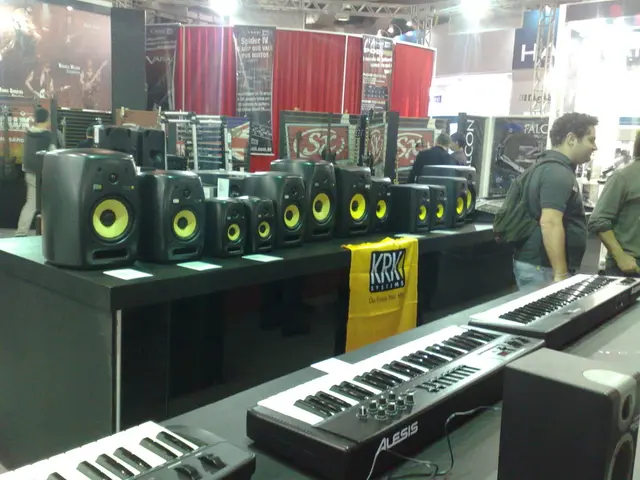Generational Comparison in Gambling Preferences: Millennials versus Generation Z
In the rapidly evolving world of online gambling, two distinct generations - Millennials and Gen Z - are shaping the industry with their unique preferences and trends.
Millennials, aged roughly between 25 and 40, are the largest demographic of active online gamblers. They tend to engage with traditional betting formats like sports betting, reflecting a stable income and consistent spending patterns. Millennials appreciate features that align with role-playing, strategy, and adventure gaming styles [1][2].
On the other hand, Gen Z, the digital natives under 25, gravitate towards more interactive and modern gambling experiences. This generation is rapidly engaging with online gambling, preferring fast, interactive, and immersive experiences such as esports betting, micro-betting, and gamified challenges integrated with social media [1][2].
This generational difference impacts online casinos by pushing operators to integrate features like gamified loyalty programs, mission-based challenges, leaderboards, and influencer-driven live content to attract younger players. These developments cater to Gen Z’s preference for community-driven, interactive experiences and mobile-first gameplay [1][4].
Millennials, however, are more inclined towards classic and digital slots, while Gen Z prefers crash games and other instant-win formats. Millennials were the first to adopt digital poker rooms, sportsbook apps, and online casinos. They view online gambling as a form of entertainment, while Gen Z sees it as an immersive experience [1].
The higher susceptibility of Gen Z to gambling risks prompts stricter regulatory attention and early-intervention measures aimed at responsible gambling [1]. In response, the online casino industry adapts marketing and product design by employing augmented and virtual reality, social media campaigns tailored for millennials, and gamification to boost engagement and retention [1][2][4].
Mobile gaming and in-app purchases related to exclusive content and customization are particularly dominant among younger players, influencing how casinos monetize and engage their audiences [1][2][4].
Younger Millennials prefer video poker, a more casual alternative to real-money poker. Gen Z, on the other hand, is drawn to VR casinos, immersive, gamified virtual environments [1]. For Gen Z in iGaming, the strategy should lean heavily into innovation, offering gamified interfaces and fast-paced experiences that feel like entertainment hubs.
In summary, Millennials prefer traditional yet digitally-enhanced gambling with stable betting habits, while Gen Z demands highly interactive, socially integrated, and gamified experiences. This drives online casinos to innovate continuously, blending traditional betting with modern gaming elements and mobile-first, socially connected platforms to serve both cohorts effectively and responsibly [1][2][4].
[1] https://www.statista.com/topics/1179/online-gambling/ [2] https://www.businessofesports.com/articles/esports-betting-market-growth-trends [3] https://www.gamblingcommission.gov.uk/for-the-public/your-rights-and-protections/safer-gambling/young-people-and-gambling/ [4] https://www.forbes.com/sites/forbesagencycouncil/2021/01/25/how-the-gambling-industry-is-adapting-to-the-next-generation-of-players/?sh=620e46d3123c
In the fast-paced evolution of the online gambling industry, sports betting and sportsbook platforms are favored by Millennials, aligning with their preference for traditional yet digitally-enhanced formats. Conversely, Gen Z is increasingly engaging with modern gambling trends, such as esports betting, micro-betting, and gamified challenges, reflecting a preference for interactive and immersive experiences.
To cater to Gen Z's unique preferences, online casinos are adapting by integrating gamified loyalty programs, mission-based challenges, and influencer-driven live content into their platforms, offering a community-driven, interactive experience. On the other hand, Millennials are more inclined towards classic and digital slots, while Gen Z prefers crash games and other instant-win formats.






